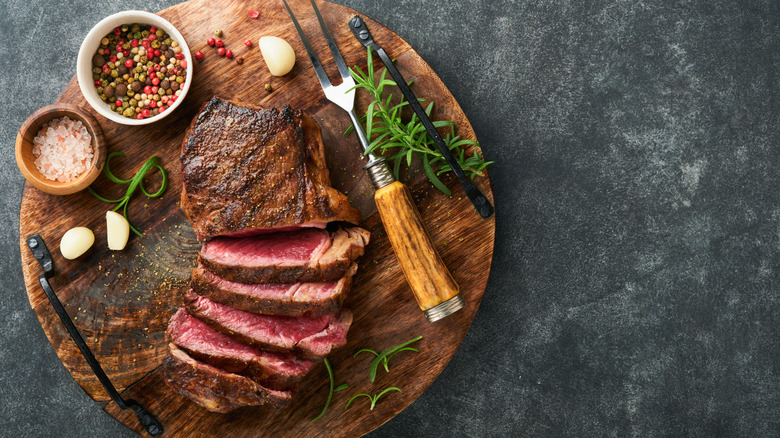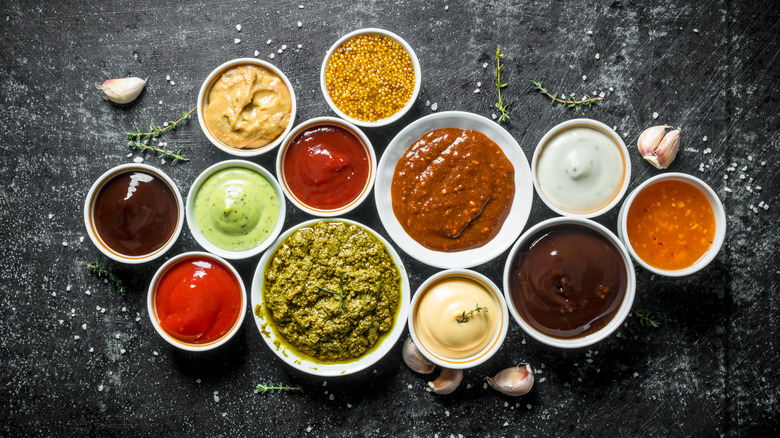How To Prevent Your Cooked Meat From Drying Out When You Reheat It
Meal prepping can help cooks save money and time, reduce weeknight stress, and maintain a balanced diet. Cooking food, particularly meat, ahead of time ensures a fridge packed with helpful, flavorful ingredients. However, you may find it frustrating to labor over a juicy roast chicken or a succulent pork shoulder, only to find yourself with a container full of dry or stringy leftovers the next day.
Before you give up on making poultry, pork, or beef ahead of time, consider taking a new approach to both cooking and employing your favorite cuts. Registered dietician Lindsay Livingston — who shares tips for mastering food prep and other food prep resources on The Lean Green Bean — has suggestions, starting with the initial cook. Instead of focusing on baking and reheating a crispy-skinned bird, you can prioritize infusing moisture with a low-and-slow technique. "If you don't love reheating meat because it seems tough or dry, try methods like slow cooking, braising, etc. to keep the meat from drying out," Livingston told Food Republic.
A flavorful recipe, like cider-braised chicken or super-simple braised pork belly, can produce tender leftovers begging to be reheated and repurposed, rather than trashed. For those who prefer a neutral base, you can also poach lean proteins like chicken breasts in broth, water, or coconut milk to keep them supple. Once you're done, store the prepared meat in the braising liquid in either the fridge or the freezer for added protection.
Marinades and sauces help prevent dry reheated meat
Even if you're not a fan of the slow cooker, there are a number of ways to meal prep moist meat, including on the grill or in an air fryer. Registered dietitian Lindsay Livingston uses her fryer to tackle everything from turkey to steak ahead of time. "Each week I marinate some chicken, cook it in the air fryer, and then chop it and have it on hand for quick meals," Livingston said. "The same can be done with steak, ground turkey or beef, and pulled pork or chicken."
Livingston's secret weapon — the marinade — performs the invaluable function of actually tenderizing the meat, allowing her to speed through the rest of the cook using her air fryer. To do the same, use a recipe that includes either an acid, like citrus or vinegar, or a basic ingredient, like baking soda and sparkling water, to help lock in the protein's water content. The enzymes in pineapple juice can also soften leaner cuts. Cooks will have to build in time for the soak to do its job, but this forethought will allow for more flexibility in the kitchen.
If you're still struggling, Livingston suggests cooks use their leftovers in soups and casseroles. Pozole, pot pie, and chili, for example, can revive ground turkey and shredded pork that's dried out during refrigeration. Or, for a quicker boost, you can make punchy, creamy sauces to rehydrate those reheated chicken kabobs destined for tacos or sandwiches.


